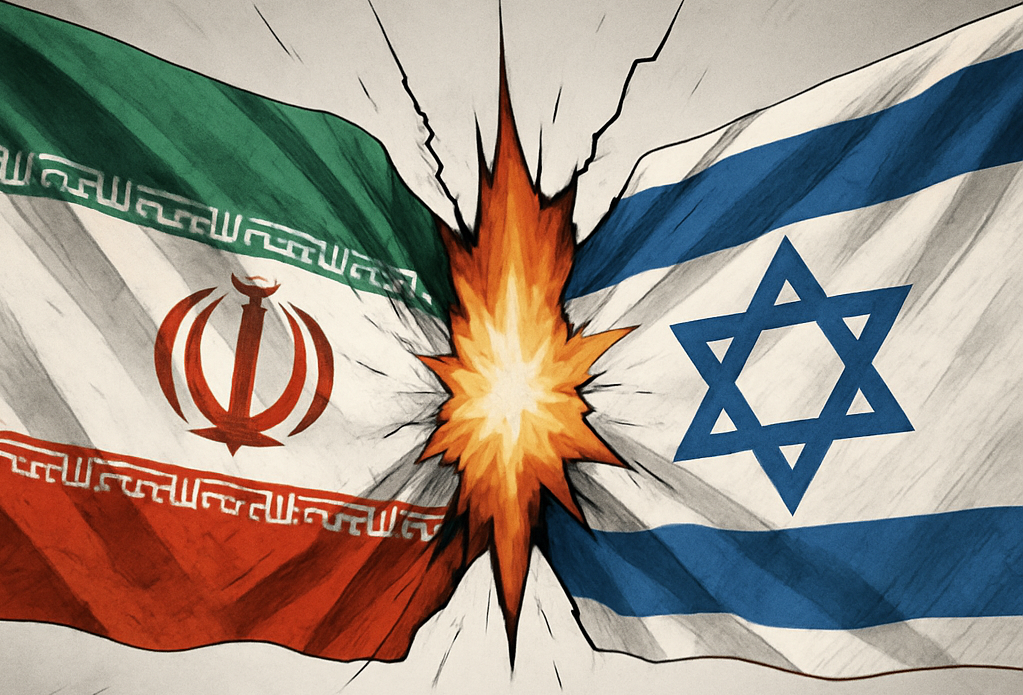Iran–Israel Conflict: Impact on Indonesia’s Economy and Logistics
The escalating tensions between Iran and Israel have rattled global markets, raising fears of disrupted oil supply, trade instability, and financial turbulence. As a major logistics and supply chain player in ASEAN, Indonesia must prepare for potential economic fallout.
1. Global Risks from the Iran–Israel Conflict
A. Oil Price Volatility & Supply Chain Disruption
-
Iran is a major oil producer. The conflict may disrupt shipments through the Strait of Hormuz (which handles 20% of global oil supply).
-
Rising oil prices will increase shipping, fuel, and global inflation costs.
-
Cargo ship insurance premiums in the Middle East may spike, affecting global logistics.
B. Trade Route Disruptions
-
Attacks on maritime routes (such as the Red Sea) could force ships to take longer detours, causing shipping delays and higher freight costs.
-
Indonesia’s exports (palm oil, textiles, electronics) and imports (machinery, raw materials) may face higher costs and delivery delays.
C. Financial Market Turbulence
-
Investors may shift capital from emerging markets (like Indonesia) to safe-haven assets (USD, gold), weakening the rupiah.
-
A weaker rupiah increases the cost of fuel and imported goods, reducing business profit margins.
2. Impact on Indonesia’s Economy
A. Rising Fuel Prices & Inflation
As a net oil importer, Indonesia will face:
-
Increased fuel subsidies burden (Pertalite, Solar).
-
Higher transportation and production costs.
-
Bank Indonesia may raise interest rates, slowing down economic growth.
B. Logistics and Bonded Zone Challenges
-
Higher shipping costs → rising import/export costs in bonded logistics zones.
-
Delays in raw material imports → disrupted production, especially for JIT-based factories.
-
Export competitiveness is at risk if logistics costs soar.
C. Impact on Migrant Workers & Foreign Investment
-
Over 6 million Indonesian workers reside in the Middle East; regional instability may reduce remittance flows.
-
Foreign investors may delay projects in Indonesia due to geopolitical and currency risks.
3. Strategies for Logistics & Business Players
A. Diversify Supply Chains
-
Explore alternative routes that avoid the Red Sea, such as via Africa.
-
Strengthen partnerships with local suppliers to reduce import dependency.
B. Hedge Against Fuel and Currency Risks
-
Use futures contracts to secure fuel prices.
-
Apply currency hedging to minimize rupiah volatility exposure.
C. Boost Efficiency in Bonded Zones
-
Digitize customs processes to speed up procedures.
-
Build up critical raw material safety stock.
D. Government Policy Recommendations
-
Accelerate the transition to renewable energy (solar, biofuel) to reduce oil dependence.
-
Upgrade port infrastructure to handle changing trade routes.
-
Provide fiscal incentives for logistics firms impacted by high costs.
4. Conclusion: Prepare for Uncertainty
The Iran–Israel conflict poses real risks to Indonesia’s economy and logistics sectors. But with proactive strategies, the impact can be mitigated.
Key Actions:
✅ Secure fuel supply early.
✅ Anticipate shipping delays — use alternative routes and suppliers.
✅ Hedge against rupiah volatility.
✅ Digitize and secure bonded zone operations.
With proper preparation, Indonesia’s logistics industry can stay resilient amid global turmoil.
